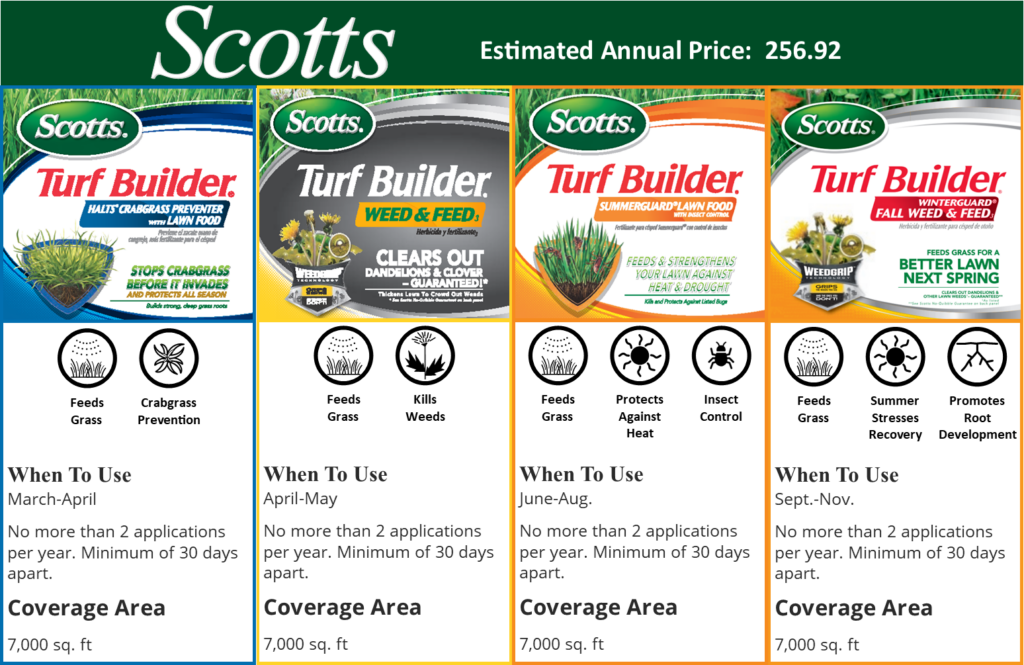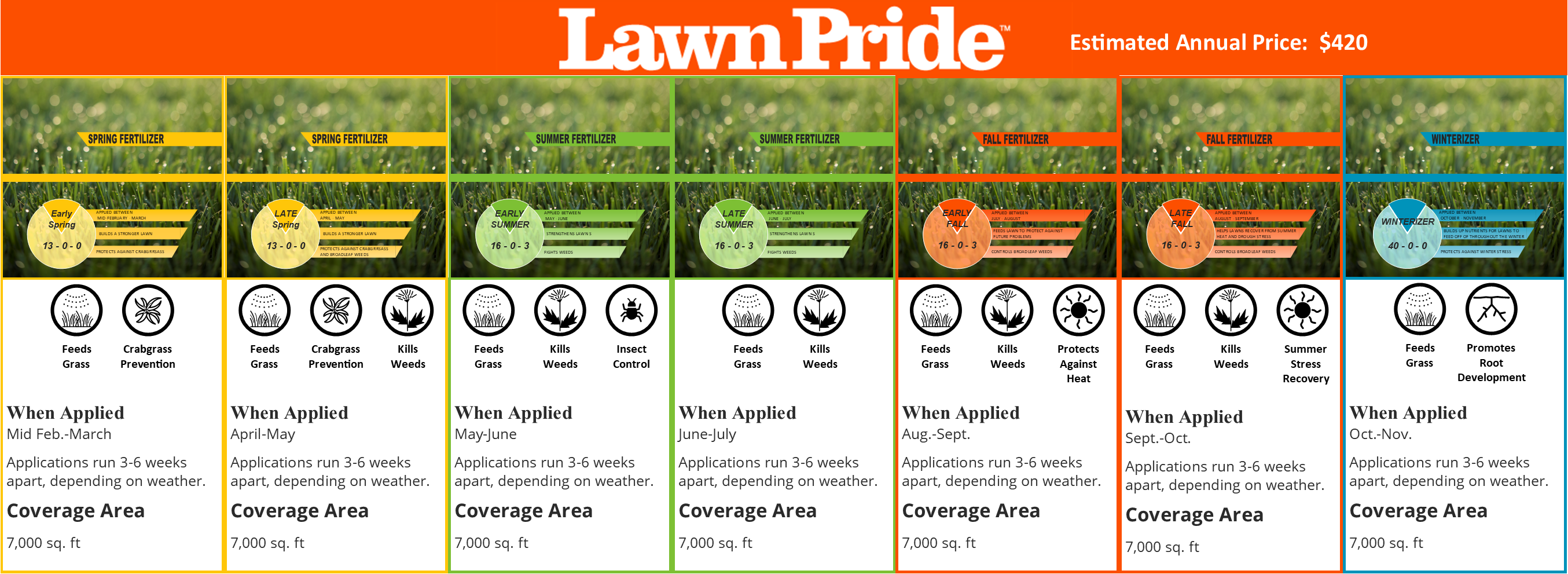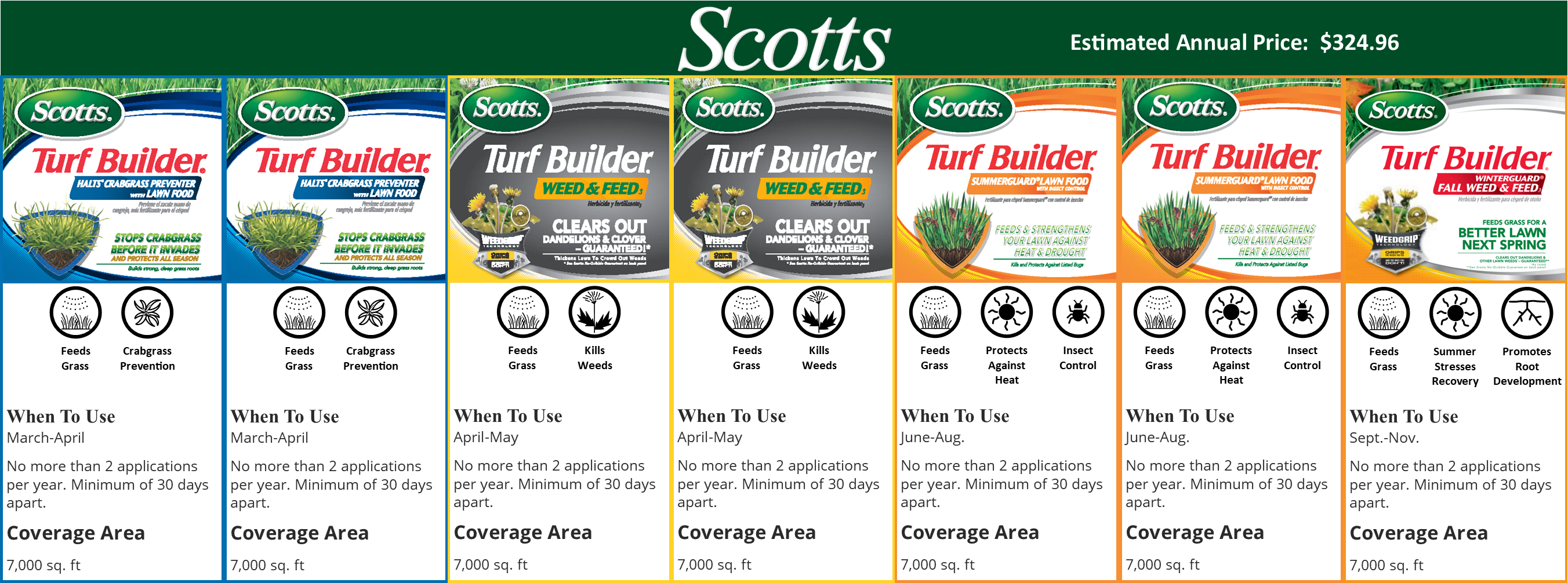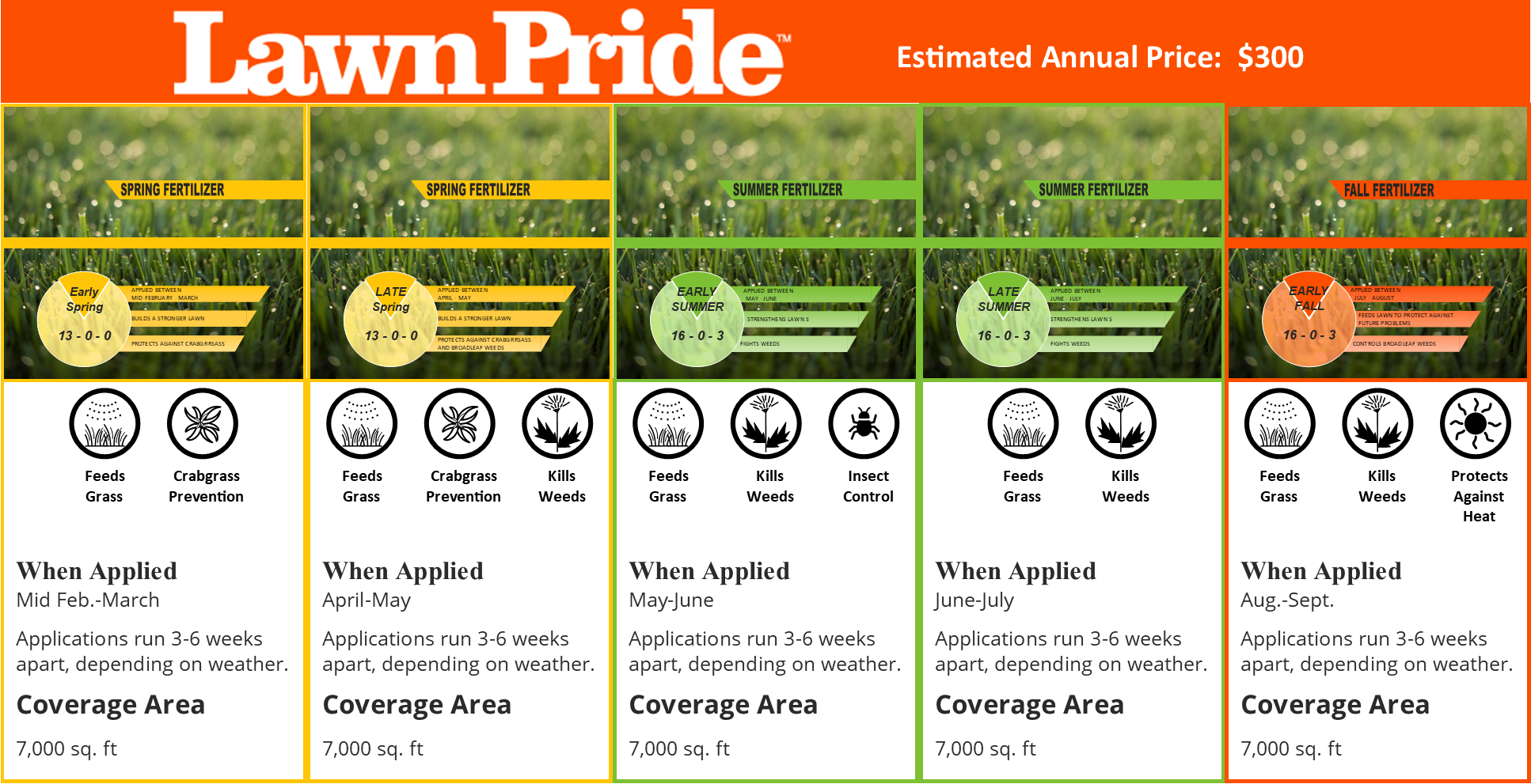
As Spring approaches, homeowners in Central Indiana are starting to decide the best way to care for their lawn. Homeowners new to lawn care often have many questions. For example, you may be wondering why should you fertilize your lawn. What nutrients does your lawn need, how do you develop a fertilizer program, and when should you start your fertilizer program? I am going to give you the low-down on fertilization programs, so you can determine if hiring a professional lawn care company or the DIY approach to lawn care is best for you.
Now, I know what you are thinking. This article was written by someone who works for a professional lawn care company, so how can this not be biased? While it's true that I work for a professional lawn care company, I am also an avid DIY'er! To me, there is nothing more fulfilling than looking back at something you have made, fixed, or just accomplished yourself. I will do my best to give you the facts and stay unbiased while reviewing both lawn care approaches. So, here we go!
When I first decided to take on this topic, I thought about what the average homeowner considers when looking into lawn care programs.
-
- Results- If you're looking into lawn care programs, it's most likely because you either want to make sure your lawn stays healthy and weed-free or because your lawn isn't looking so hot and you're seeking an improvement.
- Cost- Is it affordable? How can I get the most bang for my buck?
What Your Lawn Needs
According to Purdue University experts, an established lawn needs about 3.75 to 4.25 lbs of fertilizer per 1,000 sq ft annually. However, the way the fertilizer is applied is critical. You can't dump all of that fertilizer on the lawn at one time. Instead, the fertilizer has to be broken down into multiple applications throughout the year. In addition, the type of fertilizer that is needed during different seasons also changes.
If you look at a bag of fertilizer, you'll see that it contains three important numbers listed in this format: 32-0-4. These numbers show the percentage of Nitrogen (N) - Phosphorus (P) - Potassium (K); in this order. While all of these components are important to a lawn's health, the amount your lawn needs of these components will change according to the geographical location, soil type, grass species, and weather.
-
- Nitrogen (N)- promotes green, leafy growth
- Phosphorus (P) and Potassium (K)- help strengthen the roots
Nitrogen is the key element for a successful lawn fertilization program. This is why the percentage of nitrogen needed is the highest. Because phosphorus can get into surface water, many fertilizer programs don't include it. However, most fertilization programs include potassium in the fall for root growth to help prepare the lawn for winter.
The total amount of N-P-K your lawn needs also depends on your specific goals for your lawn. For someone who is looking to improve the lawn's health, you can get by with fewer applications per year. However, if you're looking to have the thickest and greenest lawn on the block, you'll need to fertilize more frequently. DIY fertilizer applications should be kept at least 30 days apart for lawn and environmental safety. Purdue University recommends the use of low nitrogen fertilizer in the spring and summer months. Then higher nitrogen-based fertilizer in the fall when the temperature is cooler. These higher nitrogen applications are very beneficial in preparing the lawn for the winter.
Additives in Fertilizer
During certain times in the year, many fertilization programs include additional products.
-
- Pre-emergent Herbicide- Pre-emergents are used to prevent the emergence of grassy weeds like crabgrass, but not germination of these weeds. This means timing is everything. Pre-emergents must be put down before grassy weeds emerge from the ground. Crabgrass will start to emerge after the ground temperature is at or above 60 degrees Fahrenheit for about three to five days.
- Broadleaf Weed Control- Broadleaf weeds controls are contact products that can work in a multitude of ways. Some are growth regulators, photosynthesis inhibitors, pigment inhibitors, seedling growth inhibitors, and the list goes on. However, the most important takeaway when it comes to how broadleaf weed controls work in home lawns is that weeds have to be present at the time of the application.
- Insect Control- Some fertilizer programs include insect control to help with surface insects in the lawn. Most fertilizer programs that include a surface insecticide don't have a high enough dose to control insects like fleas or ticks. These insect controls also do not help with sub-surface insects like grubs.
- Sticking Agents- Sticking agents are sometimes added to improve the results of fertilizers and weed control. Because environmental changes like rain and temperature can affect how well some products work. Adding sticking agents can improve the durability and longevity of an application.
Pro's and Con's
Now that you know what lawns need and what is in fertilizer let's go over the pros and cons of using a professional lawn care company vs' the DYI approach.
Professional Lawn Care Service
Pros
-
-
- Saves Time- With today's busy lifestyles, it's a convenient way to maintain your lawn.
- Simple- You don't have to worry about what products to use or how much to apply.
- Expertise- You have access to lawn care professionals to answer any questions or concerns. Most programs have free service calls if a problem arises.
- Reduces Risk to the Environment- Improper applications can be harmful to the environment.
- Better Products- Professional lawn care companies have access to products not available to the average consumer. Local companies like Lawn Pride, have the ability to adjust their applications to fit what lawns in according to local climate and weather conditions.
- Free Service Calls- Many professional lawn care companies offer free weed touch-ups.
-
Cons
-
-
- Cost- It can be more expensive.
- Scheduling- You can't pick your application date. Because lawn care companies have many lawns to treat, applications are scheduled to be the most proficient. This way, they can get all the lawns done in a timely manner.
-
DIY Lawn Care
Pros
-
-
- Cost Savings- It can save you money in the long run.
- Fresh Air- It's also a great way to get in some exercise
- DIY Pride- Some homeowners enjoy working out in their lawns and take pride in a well-done job.
-
Cons
-
-
- Confusing- Because DIY fertilizers are used in many different regions, it can be confusing for many people to figure out what rate they need to use for there lawn.
- Risk of Damage- Most DIY fertilizers contain high amounts of nitrogen, increasing the change of fertilizer burn.
- Hidden Cost- Buying the equipment needed initially can add up. There is can also be the added cost if a problem comes up and isn't treated properly.
- Time-Consuming- Once you figure in the time it takes to go to the store and purchase the products you need, apply the application. Then store leftover products safely; you've lost a third of your day.
- Lack of Results- Even if you apply fertilizer properly, you may not get the results you were hoping for without costly added application.
- Environmental Risk- Improper use of lawn care chemicals can contaminate surface water and lead to costly fines.
-
Program Comparison
Because many professional lawn care companies use products not available in stores and include additives that target seasonal lawn issues; comparing DIY programs to professional programs is like comparing apples to oranges. So, I have selected similar fertilizer products within the Scotts Turf Builder product line to help get a more comparable program. I will also be calculating the price for an average size lawn in Central Indiana, which is 7,000 square feet.
There are 2 types of programs I will be comparing; a basic program and a 7 application program. Which type of program you are looking for will depend on what you want to get out of your lawn care program. If you are on a tight budget and you are just trying to improve the health of your lawn, or if you just looking to maintain an already thick healthy lawn; then you may be interested in a basic fertilization program. However, if you looking for more consistent weed control and more vibrant color as well as improving the health of the lawn, you should look into a 7 application program.
Basic Application Programs
For a basic program comparison, I will be comparing Lawn Pride’s minimum 5 application program to the minimum Scotts Turf Builder program while staying within the guidelines of Scott’s application directions.

7 Application Program
When comparing Lawn Pride’s 7 application program and comparing it to the Scotts Turf Builder program while staying within the guidelines of Scott’s application directions.


| Lawn Pride Fertilization Program | Scotts DIY Fertilization Program | |
| Number of Applications | 5-7 | 4-7 |
| Estimated Cost Per Application | $60 | 4 Apps- $64.26 | 7 Apps- $46.42 |
| Annual Cost | $300 - $420 | $256.92 - $324.96 |
 Crabgrass Treatments Crabgrass Treatments |
2 | 4 Apps- 1 | 7 Apps- 2 |
 Weed Control Treatments Weed Control Treatments |
5 Apps- 4 to 5 | 7 Apps- 6 to 7 | 4 Apps- 1 | 7 Apps- 2 |
 Insect Control Treatments Insect Control Treatments |
5 Apps– 2 | 7 Apps– 2 | 4 Apps- 1 | 7 Apps- 2 |
 Free Weed Touch-Ups Free Weed Touch-Ups |
Yes | No |
 Access to Experts Access to Experts |
Yes | No |
Now that we have set up compatible programs, you can see that the Scotts DIY lawn care program is less expensive annually. However, there is some initial cost for equipment. A Scotts fertilizer spreader runs about $45. Now it's up to your to determine how much that savings is worth to you. Because while that might not seem like a lot to some homeowners, it is a lot for others. If you're just looking for the cheapest option or just enjoy working out in your lawn, then give DIY a try. If all of this seems overwhelming, or you just don't have a clue where to start when it comes to lawn maintenance, then maybe you should let the professionals handle your lawn treatment.
Lawn Pride is here for you. Our experts know what lawns in Central Indiana need and will work with you to develop a lawn care plan that fits your needs and budget.

